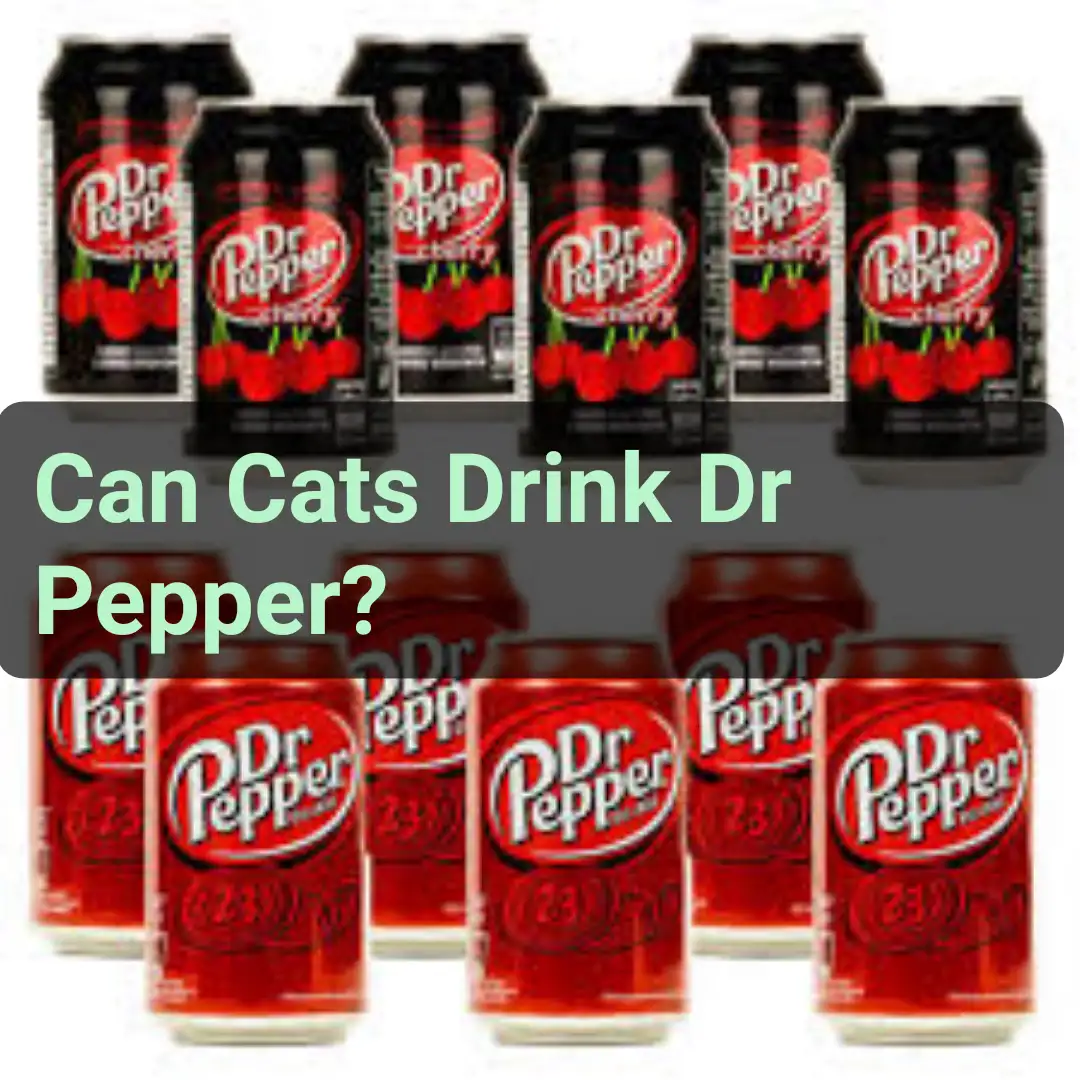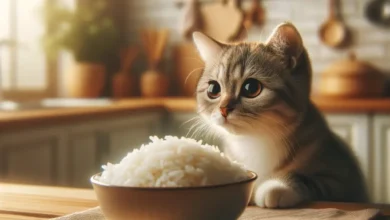Can Cats Drink Dr Pepper? Can Dr Pepper Kill Cats?

Can cats drink Dr. Pepper? Your cat, just like any other cat, can be very curious, and this will lead to trying to take advantage of any drinks or food left carelessly or unattended to, which they may lick, and if it appeals to them, they finish it off(Just like Adderall).
This can be very terrible, as most of us may have learned the hard way not to leave most human-grade food or treats out in places where our cats could easily access them, as this may have cost us $$$ in vet visits.
Since most foods and drinks we humans enjoy could be toxic to our cats, it is best to understand the risks and take the necessary precautions to avoid scenarios where our cats will have to come into contact with these foods, and this article has just about everything you need to know.
Table of Contents
- What Is Dr. Pepper?
- Can Cats Drink Dr Pepper?
- What To Do If My Cat Drinks Dr Pepper
- My cat Drank Dr. Pepper. What Will Happen?
- Can Dr. Pepper Kill A Cat?
- Is Dr. Pepper Safe for Cats? Final Thoughts
What Is Dr. Pepper?
Dr. Pepper is a fizzy soft drink that is famous for its unique taste. Although it belongs to the cola family, it stands out with its distinct combination of fruity, spicy, and sweet flavors. Invented by Charles Alderton, a pharmacist from Waco, Texas, in the 1880s, Dr. Pepper has gained immense popularity worldwide and is recognized as one of the most beloved carbonated beverages.
When it comes to Dr. Pepper’s taste, people often describe it as a fusion of cola, cherry, and vanilla flavors with hints of various spices. The exact recipe remains a well-kept secret, adding to the drink’s allure and widespread appeal.
Can Cats Drink Dr Pepper?
Technically, your cat may have a little without any serious problems, but it is not good for cats to consume Dr. Pepper or any other carbonated soft drink. Dr. Pepper contains a mixture of substances, such as caffeine, artificial flavors, sweeteners, and carbonated water, which can potentially be harmful to our feline companions.
Also, other variations of Dr. Pepper, such as Zero Sugar and Diet Dr. Pepper, are not good for cats for the same obvious reasons: the ingredients used in them are harmful to cats, as most brands that advertise Diet or Zero Sugar mainly use artificial sweeteners, which are a no-no for cats.
The Ingredients used in Dr. Pepper and how they could affect your cat
These are the main ingredients you may find across Dr. Pepper’s numerous varieties:
Artificial Colors
Dr. Pepper might include artificial dyes to make it look more appealing. These dyes are added purely for aesthetic purposes and do not provide any nutritional value for feline animals.
Artificial sweeteners
While Dr. Pepper doesn’t contain artificial sweeteners like aspartame, some diet versions of similar beverages might. Artificial sweeteners are generally not safe for cats and can cause adverse reactions.
Sodium Benzoate and Citric Acid
These additives and acids are not expected to have significant consequences for cats when consumed in very small quantities. However, since they are not typically found in a cat’s natural diet, larger amounts could potentially lead to digestive discomfort.
Carbonated water or carbonation
Dr. Pepper and other fizzy drinks have carbon dioxide gas that dissolves in the liquid. Although carbonation isn’t directly harmful to cats, it can make their digestive systems uncomfortable. Cats aren’t used to drinking carbonated beverages, so excessive gas from the fizziness may result in bloating, burping, or flatulence.
Caffeine
Caffeine is a worrisome component found in Dr. Pepper for cats. It’s a stimulant that impacts the central nervous system in both humans and animals. Since cats are smaller and have a different metabolism, they tend to be more sensitive to caffeine than humans.
Even small quantities of caffeine can cause adverse effects like restlessness, a faster heart rate, trembling, throwing up, diarrhea, and, in extreme cases, seizures.
What To Do If My Cat Drinks Dr Pepper
If your cat finds its way to Dr. Pepper and drinks a small amount of it, you need to keep an eye on the cat and make sure it’s hydrated, as this will aid the excretion of any possible toxic ingredient, but you may want to visit the vet if your cat is diabetic.
If the cat has consumed so much, then a visit to the vet or calling the poison control helpline is not an option, it is what you should do right away. Known methods, such as giving the cat IV fluids, may be carried out to aid faster excretion, or different methods of relief may be applied.
My cat Drank Dr. Pepper. What Will Happen?
What happens when your cat drinks Dr. Pepper? What could happen to your cat depends on factors such as the amount taken, your cat’s health condition, and your cat’s age or size. A small amount of Dr. Pepper will likely trigger minor stomach upsets like vomiting, diarrhea, and bloating, mostly as a result of the carbonated water.
In larger amounts, the caffeine content could take a toll on your cat. But this is very unlikely, as it takes 80–150 mg of caffeine per kg of a cat’s weight to experience caffeine poisoning, and Dr. Pepper only contains 41mg of caffeine per can, which means your cat will need to consume 8–10 cans to experience the negative effects of caffeine, such as convulsions, a high heart rate, and excessive drooling.
Can Dr. Pepper Kill A Cat?
It is very unlikely that Dr. Pepper can kill a healthy cat, as they may have to consume so many cans to experience that much toxicity that could lead to death, but an unhealthy cat may react differently as a result of the underlying diseases. With excessive consumption, heart attacks and high blood pressure could occur.
Is Dr. Pepper Safe for Cats? Final Thoughts
Cats should not be given Dr. Pepper or its variants, as they could pose a lot of health risks given that they contain ingredients that are not safe for cats even in smaller amounts. Instead of giving your cat carbonated or soda drinks, you could make chicken broth without seasoning or give them unsweetened yogurt.



